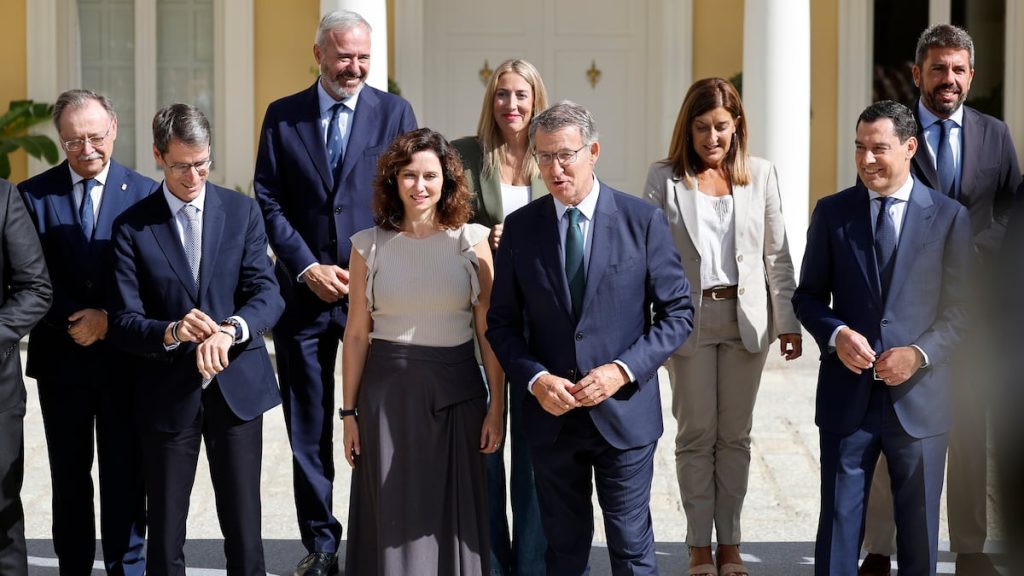The Constitutional Court is starting its first plenary session on Tuesday dedicated to addressing the amnesty law. Various resources have been pouring into the court in the past few hours, as the deadline for submission ends on Tuesday. Apart from the constitutional challenge presented by the Supreme Court and the formal objection filed by the Popular Party on the 5th, this week has seen resources from the Popular governments of Madrid, Aragon, Murcia, Andalusia, Galicia, Cantabria, and the Valencian Community pass through the registry of the Constitutional Court. Today, Castilla y León and Extremadura will join them in challenging the law. The government of Castilla-La Mancha, of the Socialist Party, has also challenged the law.
The initial step will be to accept the abstention of Justice Juan Carlos Campo, who previously referred to the “unfeasibility” of the amnesty. Justice Campo has decided not to participate in the debates due to his previous statements in favor of pardons, which could raise questions about his impartiality. The plenary session of the court will be composed of 11 justices to study the constitutional validity of the law. The resources will be addressed in three distinct phases. The first phase will involve studying the Supreme Court’s challenge to the text approved by the Cortes, which raises concerns over the possible violation of the right to equality and the principle of legal certainty. The court is prioritizing the Supreme Court’s challenge for strategic reasons and anticipates that its ruling will set the tone for the rest of the challenges against the amnesty.
The ruling on the Supreme Court’s challenge may come at the end of this year or the beginning of the next. Once the constitutional challenge is admitted, the court will request submissions from the Prosecutor’s Office, the State Attorney, and the defense of the convicted individual in the case that led the Supreme Court to question the law. This case involved public disorder following the verdict against the independence leaders. Justice Ricardo Enríquez, from the conservative group, will be the rapporteur. The court expects the Supreme Court’s challenge to be unanimously accepted. There may be disputes, however, if there are further recusals against justices for alleged lack of impartiality.
The Popular Party, whose resources will be considered in the second phase, has already requested the recusal of three members of the court, including the president of the Constitutional Court, Cándido Conde-Pumpido, and Justices Juan Carlos Campo and Laura Díez. It is likely that the remaining two recusals will be rejected. This issue will not be discussed until the plenary session in the last week of September. The rapporteur for the Popular Party’s challenge is Justice José María Macías, a recent addition to the court and part of the conservative bloc. The technical defect in this challenge is easily correctable, as the supporting MPs must explicitly state their intention to challenge the law. The Popular Party has been asked to provide the required document. The challenge by the Popular Party’s parliamentarians will likely be unanimously admitted at the end of the month, and it is possible that the challenges from the PP-led regions will follow a similar path.
Finally, the court will address the request for protection from Carles Puigdemont if the Supreme Court maintains its decision not to grant him amnesty. The Constitutional Court believes that it must first decide on all the challenges to the law before considering the possible violation of fundamental rights for the Junts leader. The court’s president has stated that it will take between six months and a year to fully resolve the debate on the amnesty. The developments related to the amnesty law are significant, and for the latest updates, readers are encouraged to subscribe to the ongoing coverage.


